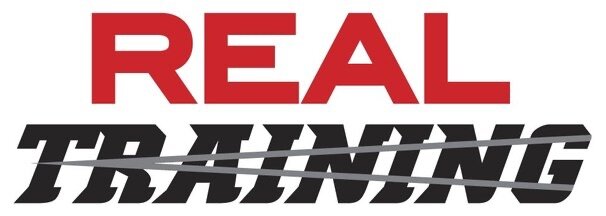Mission Statement:
Guidance and support will be provided to the young athletes in our program so they can reach their full potential through sports. Our focus is to develop the skills that will enable each participant in the program to reach higher levels of success in life. We promote healthy lifestyles that will meet the physical and mental needs of all participants. Our program will develop young athletes into positive role models with a sense of responsibility to contribute to society. Through various programs such as indoor track and field, indoor soccer, Leadership programs and community service learning projects, we have seen these kids grow into more passionate, driven individuals, and our goal is to keep the motivation going!
Program Success:
Our primary objective is to develop character. In all Leadership classes, we discuss in great detail all the aspects of someone with promising character. We want each student to grow as an all around individual. This is our primary goal. With a solid foundation and a strong value system, potential for achievement is limitless. Our athletes and students alike will have the strength when the time comes to do their very best without hesitation. We believe that is why our program has had great success on the National Level. It's not so much great athletes, but great people with a willingness to reach their goals.
In coaching, you have the opportunity to teach young people the process of how to reach success. Through sport, both the athlete and the coach go through a process in which both must gain trust in each other's ability. Trust must be developed through lessons taught by the coach with the athlete’s well being in mind. In bringing the athlete along, you must teach them proper values and make them have the ability to make the correct decisions. This opportunity might be the only time that this individual can learn this value system to carry with them for the rest of their lives. As a coach, one has the ability to change the lives of young people, so one needs to prepare carefully.
So...how can you make your athlete successful?
Develop a plan for success:
Gary Derks - Author of “Develop a Plan for Success & Keys to Success” and coach mo’s coach
A. Be very enthusiastic. You need to get your athlete excited and convince them that the sport is good for them. Having passion is a great tool of persuasion. The coach must project excitement about the sport.
B. Create a plan that will entail the development of both the mental and physical aspects of the sport. Don’t assume anything your young athlete probably knows very little. They must be taught what you expect to be carried out.
C. Gain the knowledge of the sport and master a vocabulary that you can use to help the athlete. You must be confident in coaching the sport. Don’t expect the athlete to perform at a high level if they have not be taught in the same manner.
D. Expectations must be made clear to the athlete. Challenge them both mentally and physically. Your objective is to make the best all around person not the best athlete.
E. You and the athlete must take ownership of the outcome of both your efforts.
F. The athlete must be held accountable for undesirable actions.
Level of Consciousness
Our youth are easily exploited because they are naive. As a coach you must give them the ability to see what is right from wrong. Give them the ability to make the proper decisions that can shape their lives. You must make them responsible in educating themselves as a human being. Show them that you care for them as a person not just an athlete. You must make them aware that ignorance is no excuse and that they have responsibilities as a person on how they conduct their daily lives. Get them to see the future not just the immediate. They must be aware of their actions today could affect the rest of their lives. Get them to open the door of opportunity. Give them the basis to make things happen for themselves.
Opportunity
Opportunity is a moment in time that could benefit someone. Give your kids the ability to recognize that moment and take action to benefit them. Through preparation confidence is achieved and your athlete will be less hesitant acting on opportunity.
Maturity
Is the ability to make the proper decision in certain situation? How they handle a situation must be taught. As a coach don’t assume anything. Go over how you want them to conduct themselves in certain instances. For some of our youth athletics is the only form of structure they have ever been exposed to.
Discipline
We believe that discipline is the borders in which to exceed. Through discipline a person has security because they know what to expect. Through discipline the process of preparation will be thorough. Through discipline adversity is lessened. Trust is also gained through discipline because the individual has a responsibility to the team. Remember the teenager is going to test the boundaries of discipline because testing is their method of learning. The most assertive individual will probably be the first to test the security of discipline. As a coach you must channel this assertiveness to be of benefit for the team and individual. Having discipline is a result of using your mind in formulating an idea that is important to you. Teams and individuals with little discipline can easily be defeated. They don’t have the security of knowing what to expect. Discipline allows one’s that have it to impose their will. They exhibit control in adverse situations.
Keys to Success:
1. Educate yourself as a coach or an athlete to make yourself the best you can be. Take ownership in your preparation.
2. Quality practice
The athlete must be in an engaged state of mind. (Mindfulness)
Gets your athlete thinking about the job at hand? They must develop a problem solving method. Stimulate thought during practice so they are engaged in what they are doing.
3. Control (methods of imposing your will)
Aggressive attitude derived from detailed preparation. Detailed preparation will enable the athlete to exhibit confidence no matter what the circumstances. Don’t waste time with things that you have little control of. As a coach or an athlete the only thing you can control is preparation. A quality practice is a session where the athlete and coach are both engaged and objectives are met with very little loss of time. The athlete must have quality efforts, therefore becoming the dominant response when called upon at the championship or under adverse conditions. A sloppy practice is reinforcing bad habits thus raising the possibility of a bad performance. Through control the athlete can establish a consistent performance level. Consistency is the key to winning championships. The higher level of consistency increases the chances of the great performance in a championship event.
4. Focus
The ability to focus is what separates the average athlete from the great athlete. As coaches we sometimes neglect this area. It is something that has to be taught and practiced. In having the ability to refocus it cuts down on mistakes and increases chances of success. Develop a process that brings the athlete back to the moment. Keep the process simple. This is the greatest weapon in an athlete’s arsenal. Focus must become a dominant response. A championship can be won or lost due to the loss of focus.
5. Quality Repetitions
The athlete must conduct quality repetitions at race pace or meet conditions to become the dominant response. Do not allow the athlete to continue making the same mistakes which could be from a result of fatigue or lack of focus from the individual. Try to get as many quality reps as possible to make it a dominant response. Have the ability to recognize a fault by looking at the preceding action in problem solving.
6. Mental Skill
Is the ability to focus and process stimulus. The athlete must practice clearing their mind of unwanted stimulus and focus on their objective. This is becoming very difficult with our athletes of today. Think of all the stimuli of mindless chatter they are subjected to.
7. Rehearsal
Simulate the race or championship event. This will give the athlete the security of knowing what to expect. By knowing what to expect the athlete has maintained their control.
8. Responsibility
This is a process when an action must be done to acquire a positive result. It is an expectation outwardly or internally imposed on an individual or a group for the benefit of them or others. When people face responsibility and do what is necessary the chance of succeeding increases. This is positive reinforcement will empower the person knowing that their preparation was carried out.
9. Sportsmanship
A simple guideline in the realm of sport is control. When a person exhibits unsportsmanlike like conduct is for lack of control. They have lost control with their emotions and their control on that situation. One should always keep their wits and act in a manner that will honor the sport. Why would an athlete make a mockery of the thing they love? An individual always has the opportunity to control all situations no matter what. They have to make a choice how their reaction will be projected. A person that looses control has exhibited how the situation is controlling them. Athletes and coaches need to simply follow the rules as a guideline. Rules are placed to follow a protocol in which to perform in a non biased setting. When an athlete doesn’t follow proper conduct which is the required protocol in everyday life it lessons sports as a whole. They have let themselves down in a manner showing that they are deficit in areas of compassion and responsibilities to themselves and their sports. We must not allow this type of athlete to lower the standards that can benefit people who are engaged in sports. As a sportsman we must protect all the good things that people learn from participating in sports.
10. Convenience
Reaching the highest level of potential will not be convenient. Potential is something good that could happen in the future. It hasn’t therefore happen so one must strive and work to make it happen. This means that you cannot sit back and wait for potential to fulfill its self. You must take action which at some moments will not be convent to you. Potential has no limit so preparation will reflect how much potential is achieved. There will be no shortcuts in achieving potential. Just look at the word shortcut. The word symbolizes cutting the necessary work and coming up short in overall development. Convenience is something that is comfortable. However to reach higher levels of performance one must test limits of enduring all that is necessary requirements. . The best prepared individual or team is going to win so you must spend more time preparing to fulfill potential. A person must make a choice of doing all the necessary things or just do some of the work.

